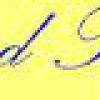 1
11)
all we requite is that atleast one of the n integers must be even n none of them must be divisivle by five
because only 2x5 will end in 0 rest all will give 2,4,6 or 8
prob integer is even =1/2
prob integer is not divisible by five and two=1-1/5-1/2+1/10=2/5
so probability = \sum_{r=1}^{n}{{n\choose r}\left(\frac{1}{2} \right)^r\left(\frac{2}{5}\right)^{n-r}}
=\left(\frac{1}{2}+\frac{2}{5} \right)^n - {n\choose 0}\left(\frac{2}{5}\right)^n
=\left(\frac{7}{10} \right)^n - {n\choose 0}\left(\frac{2}{5}\right)^n
This is wrong as cases become too complicated n selection not required
 1
1i have taken that the set of numbers from which we r choosing is not limited...i.e. all natural numbers
 1
1cud u elaborate q2 ...the symbols r not clear
 24
24ans1= (4/5)n-(2/5)n
and whats not clear in 2 ??
 1
1wat do u mean after the IF statement......n wat 4p7
 1
1got the first one......
we first include all possible numbers....
we see that in no way numbers divisible by five...(as it will then end in 0 or 5)
all other numbers are permitted
we see that 4 out of every 5 numbers is not divisible by 5
so \left(\frac{4}{5}\right)^n
but in this we have included a case where all numbers end with either 1 or 3.....but atleast one even is required
so we have to subtract
\left(\frac{2}{5}\right)^n cases
as 2 out of every 5 number ends by 1 or 3
hence the ans
\left(\frac{4}{5}\right)^n-\left(\frac{2}{5}\right)^n
 1
1arre eure ...clarify q2 na....
 24
24whats not clear ??
its 4. p7 where pk=P(r≤k l s≤k)
** l denotes ""such that ""